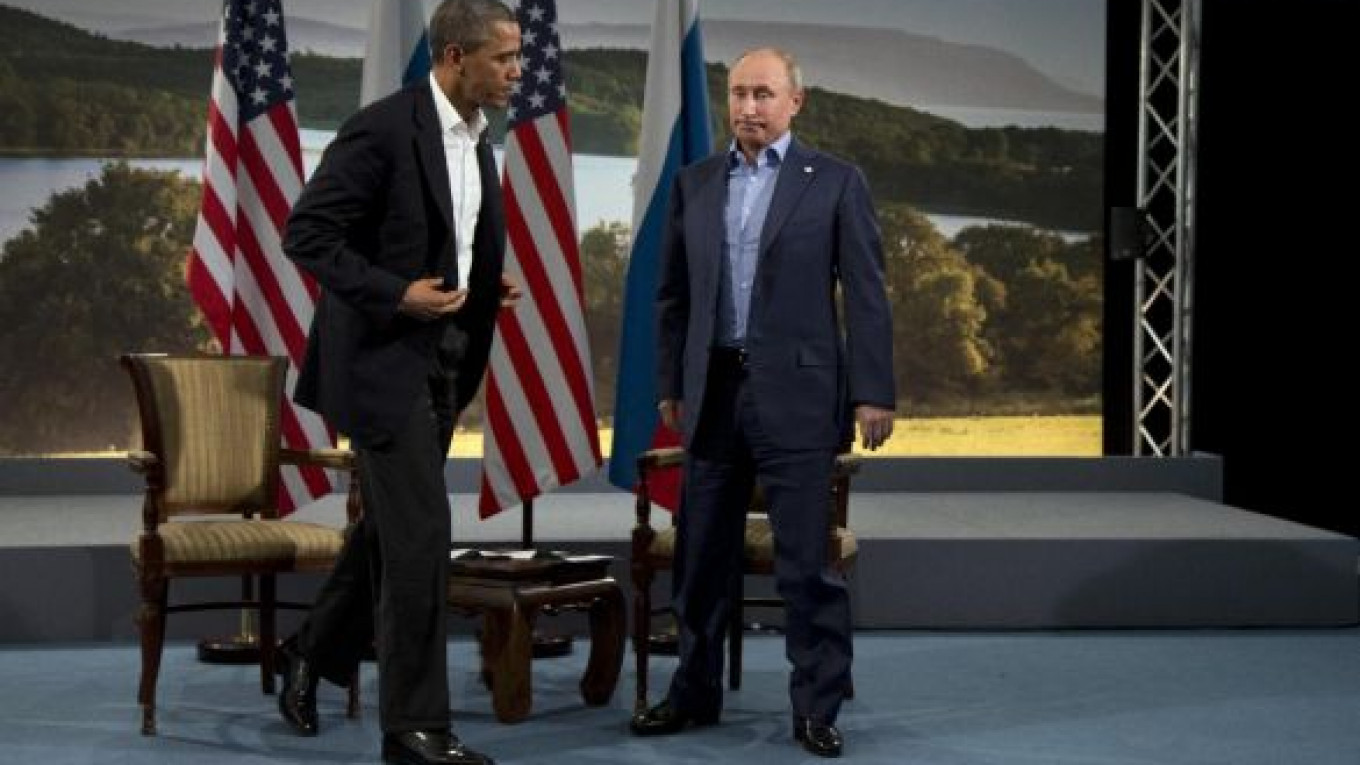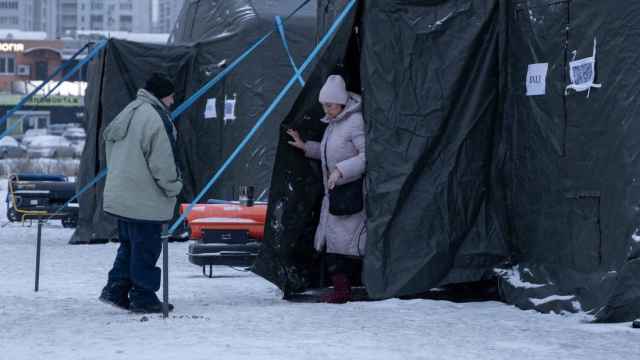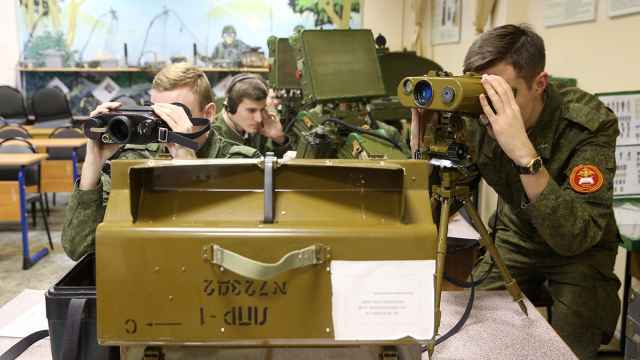U.S. President Barack Obama on Wednesday canceled an upcoming meeting with President Vladimir Putin in the latest sign of souring relations between the two countries, days after NSA leaker Edward Snowden was granted asylum and as the international outcry against Russia's anti-gay propaganda law gains momentum.
While analysts worldwide are likely questioning whether recent anti-Russia sentiment in the West played a part in Obama's decision, the White House cited several reasons for the meeting's postponement — including Russia's decision to grant NSA leaker Edward Snowden asylum and human rights abuses.
But apart from the two most high-profile issues, the U.S. also cited a lack of progress in a range of different areas.
"Given our lack of progress on issues such as missile defense and arms control, trade and commercial relations, global security issues, and human rights and civil society in the last twelve months, we have informed the Russian Government that we believe it would be more constructive to postpone the summit until we have more results from our shared agenda," the White House's spokesman Jay Carney said in a statement.
Russia was quick to express disappointment, with Putin's foreign affairs aide Yury Ushakov placing the blame on the American side: "This whole problem highlights the fact that the U.S. is not ready to build relations on an equal basis," he said.
"For many years, the Americans have shied away from signing a bilateral agreement on extradition," he said, referring to the scandal over Russia's refusal to extradite Snowden.
The absence of an extradition agreement was cited as the main reason why Russia could not send Snowden back to the U.S. to face justice. In a recent interview with the MSNBC news network, however, Obama dismissed this explanation, saying the U.S. had sent back fugitives sought by Russia many times.
Russia-U.S. relations have been deteriorating rapidly in recent months, with the parties unable to agree on a wide array of issues, including ways to resolve the Syria crisis, Iran's nuclear program, and the further reduction of the two countries' ballistic missile inventories.
The daylong bilateral summit, scheduled to follow the Group of 20 meeting in St. Petersburg, was anticipated as an opportunity to resolve these issues.
Yet it seems that other issues have overshadowed matters of foreign affairs, and both aspects seem to have played a part in Obama's decision.
According to Maria Lipman, scholar in residence at Carnegie Moscow Center, it is precisely the events happening in today's Russia that have shaped its foreign policy and affected its reputation.
"Internal politics largely defines foreign policy both in Russia and the U.S. In the last year, shifts in the internal situation in Russia have significantly affected the country's position abroad," Lipman said.
Obama's decision to postpone the meeting also came in the midst of a heated campaign in the West to boycott "all things Russian," including the upcoming Winter Olympic Games in Sochi, to protest new legislation banning homosexual propaganda among minors in Russia.
Several celebrities, activists and well-known figures have spoken out against the legislation since it was signed into law in June.
Most recently, on Wednesday, English writer and actor Stephen Fry posted a public statement calling on the International Olympic Committee and British Prime Minister David Cameron to impose "an absolute ban on the Russian Winter Olympics of 2014," comparing Putin to Adolf Hitler.
"He [Putin] is making scapegoats of gay people, just as Hitler did Jews," he said.
Fry's statements seem to have made an impact. Half an hour after they were posted, his website was down because the server was overloaded with too many visitors.
Human Rights Watch, a well-known human rights organization that has been critical of many aspects of the Sochi Games, has cautioned against a boycott, however, saying that large-scale events like the Olympic Games expose many issues that need to be addressed in Russia.
"The Sochi Games are not just about Sochi, they are about all the human rights issues in today's Russia. We believe that this is a great chance to expose current difficulties, and we are already witnessing that happening," said Tanya Lokshina, HRW's Russia researcher.
Lokshina's words are supported by dozens of articles in the Western press in recent weeks shining the spotlight on issues of gay rights in Russia.
Incidentally, the New York Times posted an editorial on Tuesday calling for Obama's summit with Putin to be cancelled, justifying the move by saying that "Mr. Putin is a repressive and arrogant leader who treats his people with contempt, as the recent crackdown on gays and lesbians demonstrates."
Contact the author at [email protected]
A Message from The Moscow Times:
Dear readers,
We are facing unprecedented challenges. Russia's Prosecutor General's Office has designated The Moscow Times as an "undesirable" organization, criminalizing our work and putting our staff at risk of prosecution. This follows our earlier unjust labeling as a "foreign agent."
These actions are direct attempts to silence independent journalism in Russia. The authorities claim our work "discredits the decisions of the Russian leadership." We see things differently: we strive to provide accurate, unbiased reporting on Russia.
We, the journalists of The Moscow Times, refuse to be silenced. But to continue our work, we need your help.
Your support, no matter how small, makes a world of difference. If you can, please support us monthly starting from just $2. It's quick to set up, and every contribution makes a significant impact.
By supporting The Moscow Times, you're defending open, independent journalism in the face of repression. Thank you for standing with us.
Remind me later.






